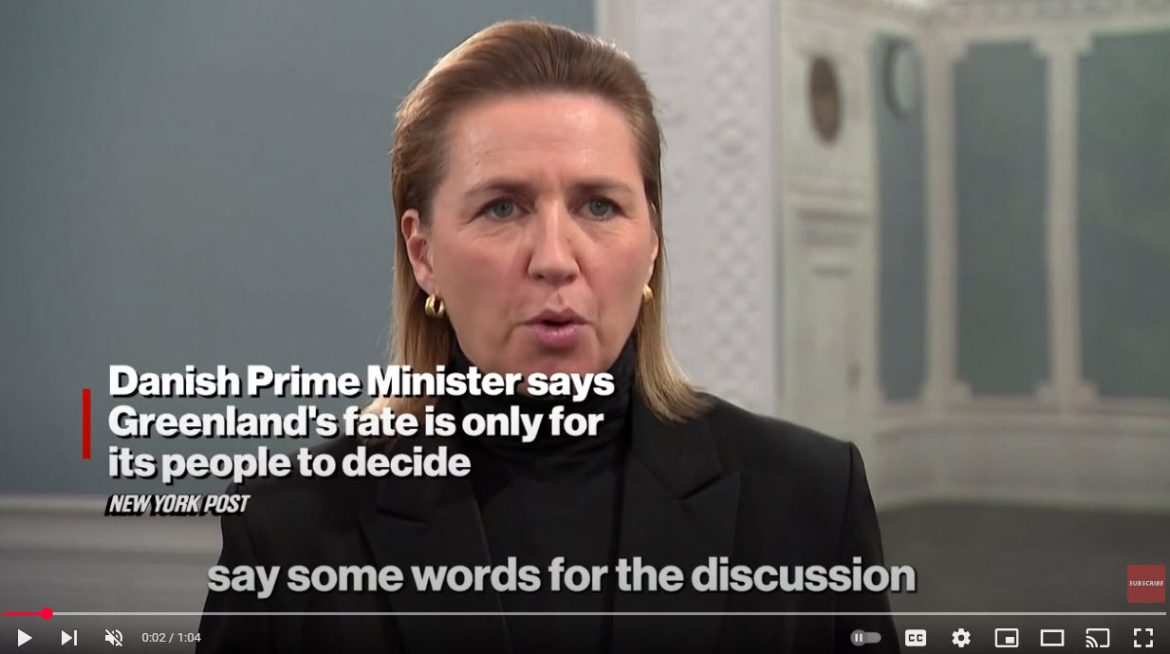Danish Prime Minister Mette Frederiksen reaffirms that the future of Greenland rests solely in the hands of its people, emphasizing the island’s autonomy in the wake of renewed interest from U.S. President-elect Donald Trump. Frederiksen’s remarks come as Trump reiterates his desire for the United States to acquire Greenland, citing its strategic and economic value.
Frederiksen stresses Denmark’s commitment to maintaining Greenland’s autonomy and respecting its sovereignty. Speaking to Danish broadcaster TV2, she says, “We need very close cooperation with the Americans. On the other hand, I would like to encourage everyone to respect that the Greenlanders are a people, it is their country, and only Greenland can determine and define Greenland’s future.” Her statement underscores a strong stance against external pressures that might undermine Greenland’s self-determination.
Donald Trump Jr.’s recent visit to Nuuk, Greenland’s snow-covered capital, further intensifies scrutiny. Arriving aboard his father’s private plane, dubbed “Trump Force One,” Trump Jr. is reportedly on a private trip lasting only a few hours, with no scheduled meetings with Greenlandic officials. The visit, however, coincides with escalating debates about the U.S. interest in the semiautonomous Danish territory.
Trump defends his interest in Greenland by claiming the island is crucial to U.S. economic security. In a statement that has drawn widespread criticism, he questions Denmark’s legal right to control Greenland. This rhetoric has sparked backlash not only from world leaders but also from Nordic populations. Greenland’s Finance Minister Erik Jensen publicly rejects the idea, stating, “Greenland is not for sale. It is our country, and it is us who will decide on our future.” His firm declaration resonates with many in Greenland who see Trump’s comments as undermining their autonomy.
U.S. Secretary of State Antony Blinken also voices his disapproval, emphasizing the importance of working closely with allies rather than alienating them. Blinken highlights that the U.S.-Denmark relationship, particularly concerning Greenland, benefits from mutual respect and cooperation rather than unilateral declarations.
Greenland, geographically closer to North America than Europe, holds significant geopolitical value. The island’s vast ice sheet and its role in global climate regulation make it a focus for environmental scientists. Furthermore, Greenland hosts Thule Air Base, a key U.S. military installation that underscores its strategic importance within NATO.
This is not the first time Trump has expressed interest in acquiring Greenland. During his first term, he sparked controversy by suggesting the U.S. should purchase the island. His renewed push as he prepares to re-enter the Oval Office reignites these debates, drawing attention to Greenland’s pivotal role in global politics and its unique position in climate and defense strategies.
As Trump’s comments continue to dominate headlines, Greenland’s leaders and the Danish government remain resolute in defending the island’s sovereignty. For now, the question of Greenland’s future remains firmly in the hands of its people, as emphasized by Frederiksen and echoed by leaders across the Nordic region.



